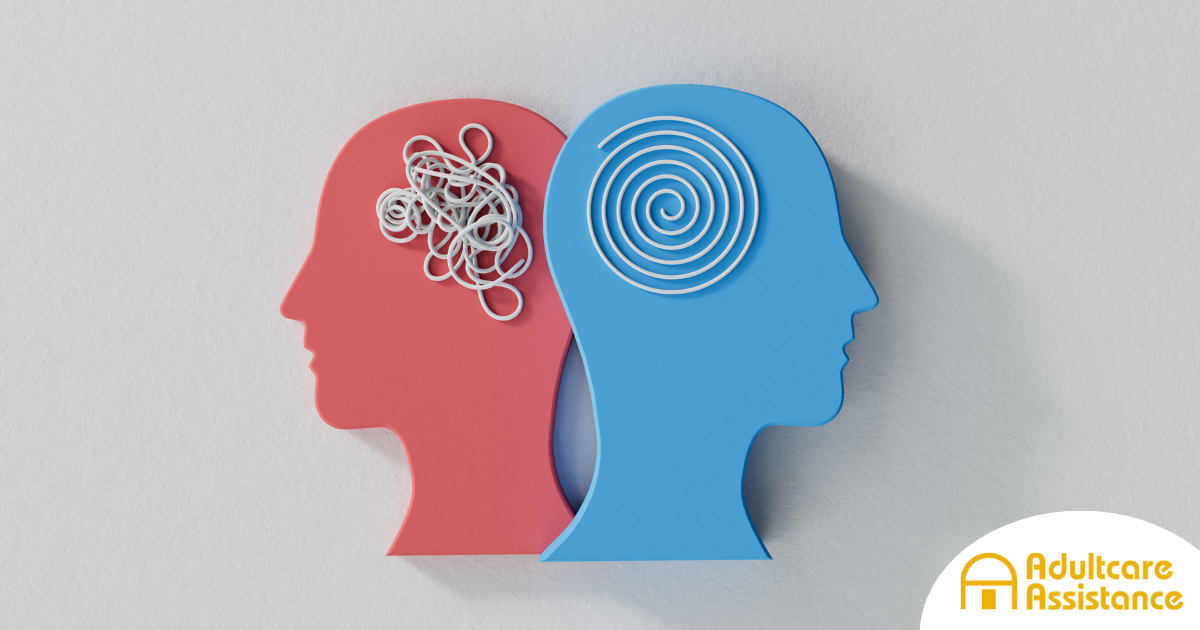Aging affects different people in different ways. While some seniors must learn how to overcome physical challenges, others experience changes that alter brain function, including mild cognitive impairment, dementia, and Alzheimer’s disease. Thankfully, engaging in regular exercises and activities that help prevent cognitive decline can significantly contribute to brain function and overall well-being.
What follows are tips and strategies seniors in Phoenix can use to maintain brain health on the road to enjoying a higher level of cognitive fitness.
Signs and Symptoms of Mild Cognitive Impairment
As they age, most people get more forgetful. For example, it may take longer to think of a word or recall the name of a childhood friend or deceased relative.
However, if you or an aging loved one are experiencing these symptoms, it could be mild cognitive impairment (MCI):
- Forgetting things more often
- Missing medical appointments or social events
- Losing train of thought or the inability to follow the plot of a book or movie
- Difficulty following a conversation
- Becoming increasingly difficult to make tough decisions, finish a task, or follow instructions
- Struggling to navigate places that should be familiar
- Poor judgment
- Others noticing these changes
Those with MCI may also experience:
- Feelings of depression or anxiety
- Short-tempered and aggressive behavior
- Lack of interest in activities once enjoyed
Brain Health Tips for Seniors in Phoenix
Seniors and family caregivers play a vital role in maintaining mental acuity and preventing dementia. While working together, be sure to include these tips in your brain health strategy:
Physical Exercise for Cognitive Health
Physical exercise not only benefits our bodies but also positively impacts brain health. Regular aerobic exercises have been linked to improved cognitive function, including memory and attention. Seniors should be encouraged to engage in activities such as walking, swimming, dancing, or cycling to promote blood flow and oxygenation to the brain. Aim for at least 30 minutes of moderate-intensity exercise 3 to 5 days a week.
Mental Stimulation and Challenges
Engaging in mentally stimulating activities is crucial for maintaining cognitive fitness. Seniors need to participate in puzzles, crosswords, sudoku, or brain-training apps that challenge memory, attention, and problem-solving skills. Reading books, learning a new language, playing a musical instrument, or taking up a new hobby can also provide mental stimulation and promote brain health.
Social Interaction and Engagement
Social interaction plays a vital role in brain health and cognitive fitness. Older adults should participate in social activities such as joining clubs, attending community events, or engaging in group exercises. Regular social interaction helps to maintain cognitive function, memory, and emotional well-being. Encourage family caregivers to organize regular gatherings or outings to ensure their loved ones have opportunities for social engagement.
Mindfulness and Meditation
Practicing mindfulness and meditation techniques can significantly contribute to cognitive health and mental acuity. Seniors need to engage in activities that promote relaxation and reduce stress, such as Yoga, Tai Chi, or meditation, as these practices have been shown to improve attention, memory, and overall cognitive function.
Healthy Diet and Brain-Boosting Foods
A nutritious diet is crucial for brain health and preventing cognitive decline. Aging adults must consume a diet rich in fruits, vegetables, whole grains, lean proteins, and healthy fats. Some brain-boosting foods include blueberries, fatty fish, nuts, seeds, and green leafy vegetables. These foods contain antioxidants, omega-3 fatty acids, and other nutrients that support brain health.
Quality Sleep for Optimal Cognitive Function
A good night’s sleep is essential for cognitive health. As a caregiver, encourage your loved one to establish a regular sleep routine and create a comfortable sleep environment. Aim for 7 to 8 hours of uninterrupted sleep each night. Quality sleep supports memory consolidation, problem-solving abilities, and overall cognitive function.
What it All Means for You and Your Loved Ones
Maintaining brain health and cognitive fitness should be a priority for seniors and family caregivers. By incorporating regular physical exercise, mental stimulation, social interaction, mindfulness practices, a healthy diet, and quality sleep, seniors can significantly reduce their risk of cognitive decline and dementia. Encouraging and engaging in these activities will not only promote cognitive health but also enhance overall well-being.
10 Brain-Teasing Activities for Seniors and Family Caregivers
While it’s never too late to start prioritizing brain health, doing so can help seniors of all ages lead more fulfilling and vibrant lives.
With that in mind, here are 10 brain-teasing activities that seniors and loved ones can easily do together:
- Crossword puzzles: Doing crossword puzzles will challenge a senior’s vocabulary, memory, and problem-solving skills.
- Sudoku: Solving number-based puzzles will exercise logical thinking and concentration.
- Jigsaw puzzles: Work on completing jigsaw puzzles to improve visual-spatial skills and attention to detail.
- Memory games: Play memory games like matching cards or recalling sequences of numbers or objects.
- Word games: Engage in word games such as Scrabble or word search puzzles to stimulate language and memory.
- Brain-training apps: Utilize smartphone or tablet apps designed to improve cognitive skills like memory, attention, and problem-solving.
- Strategy board games: Play strategy games like chess or Mahjong to enhance critical thinking and planning abilities.
- Riddles and brain teasers: Share riddles or brain teasers with each other to stimulate creative thinking and problem-solving.
- Trivia quizzes: Organize or participate in trivia quizzes covering various subjects to challenge knowledge and memory recall.
- Art therapy: Engage in art activities like painting, drawing, or coloring to stimulate creativity and improve focus.
- Musical instruments: Learn to play a musical instrument to enhance coordination, memory, and cognitive function.
- Virtual reality games: Explore virtual reality games designed for cognitive stimulation, spatial awareness, and memory.
As part of a comprehensive brain fitness program, all these activities can be adapted to suit individual preferences and abilities. If family caregivers are unavailable, a professional in-home caregiver from a reputable provider can step in and provide your loved one with the cognitive health support they need.
Compassionate In-Home Dementia Care for Seniors in Phoenix
When you or an aging loved one needs brain health assistance, contact Adultcare Assistance Homecare in Phoenix. We are a fully licensed and insured provider with highly trained professionals who are experts at delivering the cognitive fitness services your loved one deserves. While serving as an extended family in your senior’s home, our compassionate caregivers can perform various duties, including Alzheimer’s Disease Care, Companion Care, Elderly Fall Prevention, Bathing and grooming, Senior Activities, 24-hour live-in Assistance, Hospital to Home, Senior Transportation, Respite Care, Hospital Sitter, Medication Reminders, and Light Housekeeping.
While assisting clients in Tucson, and Sun City, our agency’s focus is maintaining your loved one’s quality of life, along with their dignity, self-esteem, and independence. For your added convenience, all our in-home services can be individually personalized into an affordable package when and where you need them! Please visit Adultcare Assistance Homecare online now to learn more about us or schedule a FREE initial consultation for a senior in our service area.



